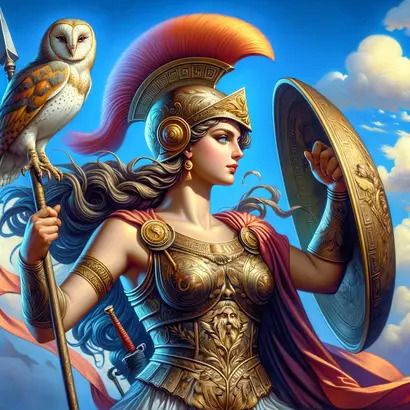
Orestes
Orestes was the son of Agamemnon and Clytemnestra in Greek mythology, who was hunted by the Erinyes after he killed his mother.
The story of Orestes is the main topic of various ancient Greek plays. After the Trojan War, Orestes' father, Agamemnon, returned to Mycenae (or Argos), along with his prize, the Trojan princess Cassandra. Cassandra had the gift of foretelling the future, but was also cursed not to be believed by anyone. Despite Cassandra's warnings about what was about to happen, Agamemnon entered his palace, only to be murdered by his wife Clytemnestra and her lover Aegisthus, who was Agamemnon's cousin. Orestes, a young boy at the time, was not present at the palace, but had run away with his sister Electra and found refuge at the court of Athens.
When Orestes became an adult, he was urged by his sister and the god Apollo to avenge their father's death; Orestes, assisted by his friend Pylades, returned to the city, and murdered his mother and her lover. However, committing matricide was a horrible act that brought the fury of the Erinyes upon him. He was driven mad and was pursued by them.
Orestes sought refuge at the temple of Apollo, but even the god was powerless to stop the Erinyes. In the end, Athena accepted his pleas and organised a formal trial to be held before twelve judges. The Erinyes asked that the perpetrator be punished, while Orestes said that he followed Apollo's orders. When the judges voted, the result was a tie; however, Athena's vote, who was the chief justice, broke ties, leading to Orestes' acquittal. Grateful, Orestes dedicated an altar to Athena, while the Erinyes were appeased by getting a new ritual, during which they were worshipped as the Venerable Ones.
According to a different source, while Orestes was still pursued by the Erinyes, Apollo told him to go to the land of Tauris and bring back a statue of Artemis, which had fallen from the sky. Orestes agreed and went to Tauris, accompanied by his friend Pylades. There, they were captured by the cult of Artemis, who was told to sacrifice all Greeks to the goddess. When the priestess of Artemis heard that two Greeks had been captured, she offered to help one of them escape if they would agree to carry a letter to her brother; the priestess was in fact Iphigenia, Orestes' sister, who was believed to have been sacrificed to Artemis before the Trojan War started. Orestes demanded that Pylades should go, while Orestes would stay behind to be slain. Pylades reluctantly agreed, but when he received the letter, he realised who the priestess really was. All three of them eventually escaped, carrying with them the statue of Artemis.
Upon returning to Greece, Orestes reclaimed the throne of his father, becoming the ruler of Mycenae. He died after being bitten by a snake in Arcadia.
See Also: Agamemnon, Clytemnestra, Aegisthus, Pylades, Athena, Apollo, Erinyes, Iphigenia
Orestes Q&A
Link/Cite Orestes Page
Written by: The Editors of GreekMythology.com. GreekMythology.com editors write, review and revise subject areas in which they have extensive knowledge based on their working experience or advanced studies.
For MLA style citation use: GreekMythology.com, The Editors of Website. "Orestes". GreekMythology.com Website, 07 Jun. 2015, https://www.greekmythology.com/Myths/Mortals/Orestes/orestes.html. Accessed 26 April 2024.






